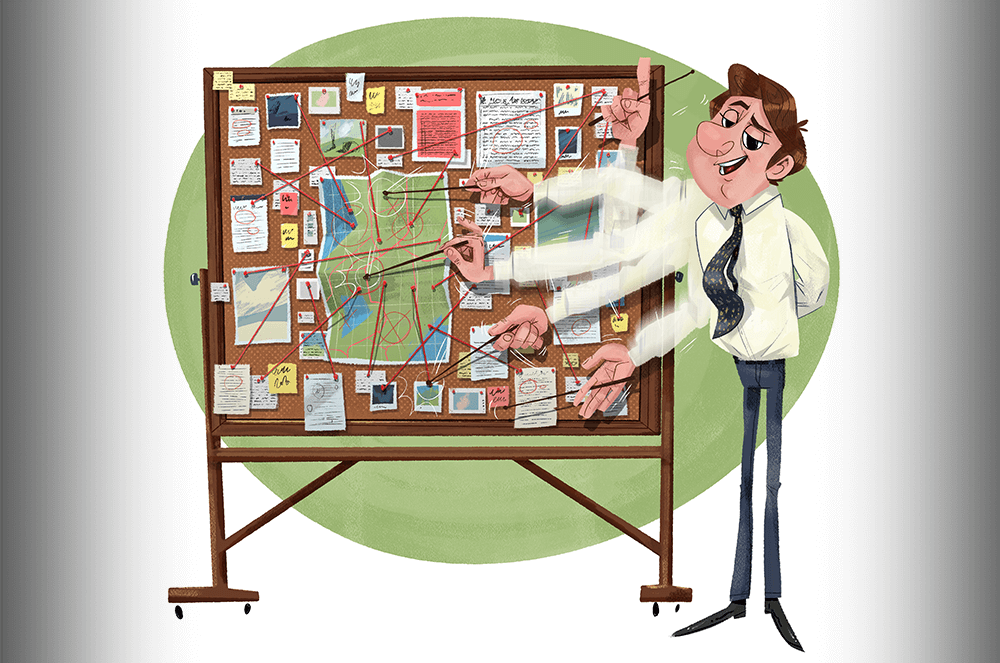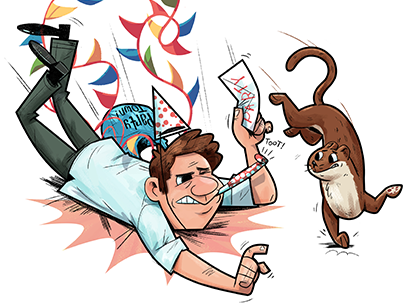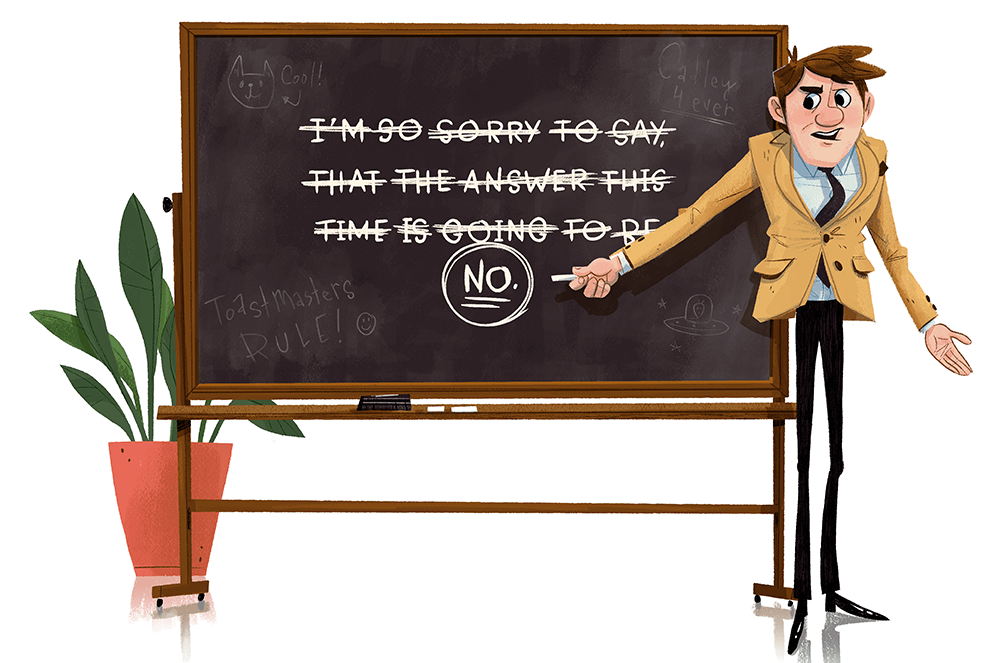
If I were a Sophist and you were to quote Sir Walter Scott’s words “Oh, what a tangled web we weave, when first we practice to deceive,” I would reply: “You say that like it’s a bad thing.” Weaving tangled webs of words for the express purpose of deception is exactly what sophistry is all about. Not that I encourage such a devious rhetorical tactic. Yes, Toastmasters practice the art of persuasive speech, but always in the cause of the just, the pure, and the righteous, even when questioned by the Internal Revenue Service about their tax deductions. I’m quite sure this is true.
My intention, rather, is to help you recognize when you are being bamboozled so as to avoid any unpleasant consequences, like when someone flips a coin and says, “Heads I win, tails you lose,” and you call “Heads!” The premise seemed to make sense but … well, it didn’t, did it?
That’s sophistry in its simplest form—a proposition that sounds plausible and yet is demonstrably false. In practice it’s usually much more subtle and sophisticated, as would befit a skill that began with the ancient Greek philosophers. The search for absolute, universal truth that so engaged other deep thinkers of their day was viewed by the Sophists as the proverbial blind man searching in a dark room for a black cat that isn’t there. The only “truth,” said the Sophists, is that which each person derives individually from their own personal experience. You say the room is warm; I say it feels chilly. We’re both “right,” whatever that means.
Hence, in a society where public debate was the predominant method for settling an issue, the Sophists, with their finely honed skills in rhetoric, were basically arguers for hire. Pay them to make your case and they would gladly do so—unless your opponent offered them more, in which case they would argue his case. Unethical? Immoral? I’m a Sophist. What’s your point?
Politicians are known for sophistry, of course. There’s no one like a senator to get you cheering wildly without any idea why you’re so happy. Advertisers, too. Add one nanoscopic ingredient to a product, call it “new and improved,” and charge 10% more. My personal favorite is cryptocurrency, which is sophistry without words: “I’m rich!”/“What can you buy?”/“I don’t know!”
Toastmasters practice the art of persuasive speech, but always in the cause of the just, the pure, and the righteous, even when questioned by the Internal Revenue Service about their tax deductions.
The legal profession is where sophistry reaches its zenith—and that is not a criticism. Sophistry is not lying. It is using every bit of logic, persuasion, reasoning, and eloquence at your command to serve the interests of your client. This is precisely what lawyers do—what they are, in fact, legally obligated to do:
“Ladies and gentlemen of the jury, my client is accused of stealing 547.36 from his office Toys for Tots fund. The law says that to convict him, you must be certain of his guilt beyond a reasonable doubt. You have heard that an eyewitness saw him steal the money … that his DNA was found on the cash box … that he said, ‘I did it and I’m sorry.’ Seemingly damning facts, but there are other facts: Only 35% of the adult population has 20/20 vision. Thus, the odds are strong that our eyewitness did not have perfect vision and without prescription glasses would, technically, have been visually impaired. Can such a person be certain of what they saw?
“As for my client’s DNA … DNA evidence is 99% accurate. Not 100%! Just 99% and thus room for error. My client said, ‘I did it.’ Did what? He said, ‘I’m sorry.’ For what? He didn’t say. Isn’t it reasonable to assume we’ve all done things we’re sorry for that are not crimes? In conclusion, to convict you are legally required to have reasonable doubt. I have given it to you. Thus, if you vote to convict, YOU are breaking the law. The defense rests.”
This is sophistry pure and simple, an attempt, through specious argument, misleading words (“just” 99%!?), and twisted logic to turn an open-and-shut case of pernicious malfeasance into an Agatha Christie whodunit. You wouldn’t be fooled by this, nor would I … except for those eyeglasses. Were they the right prescription? Your honor, can we see the evidence again?
John Cadley is a former advertising copywriter, freelance writer, and musician living in Fayetteville, New York. Learn more at www.cadleys.com.



 Previous
Previous

 Previous Article
Previous Article

